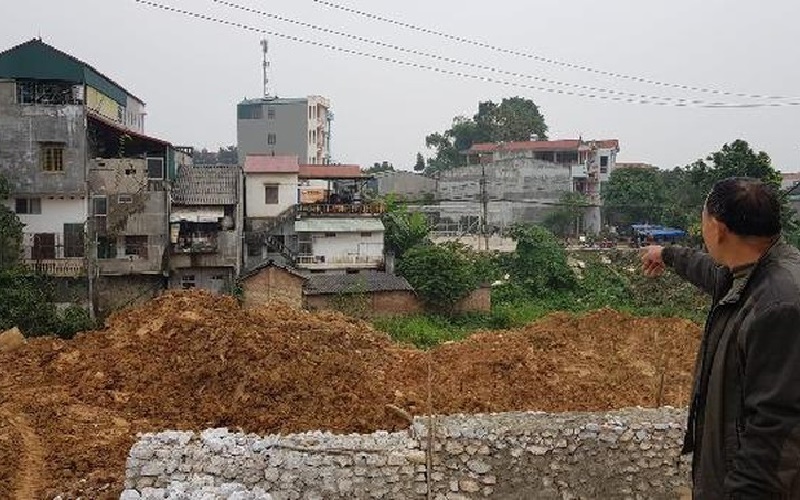While purchasing land without a red book is not uncommon, buyers may see immediate benefits, but investing in land without a red book is a risky long-term proposition. Therefore, before deciding to buy land without a red book, you need to be very cautious and pay attention to the following!
Reference:
1 Potential Risks of Buying and Selling Land Without a Red Book
Buying land without a red book can, in some cases, be legalized and granted a red book. However, in some cases, buyers may face certain risks, namely:
Firstly, the land you buy will not be granted a red book if the land area falls outside the zone eligible for a red book.
Secondly, since the land does not conform to planning standards, it cannot be converted from agricultural or non-agricultural land to residential land. This implies that you will not be able to obtain a red book for the land you purchased.
 Disputed land
Disputed land
Thirdly, the purchase of land without a red book is mainly done through a handwritten agreement with witnesses’ signatures. However, this type of document is not legally valid and may lead to disputes and litigation, potentially rendering the sales contract invalid.
Furthermore, if you do not carefully research, you may buy land that is under dispute, subject to reclamation, or illegally occupied. This poses the risk of losing the purchased land due to the absence of a red book.
Fourthly, according to Decree 102/2014/ND-CP, fines ranging from 3 to 5 million VND may be imposed for the sale, lease, or gift of land without a land use certificate.
For further information: Latest in 2022: Conditions, dossiers
2 What to Do When Buying a House or Land Without a Red Book
If, after your calculations, you still choose to buy a house or land without a red book, or if you unfortunately buy a property without one, you must pay attention to the following!
Firstly, you should make a deposit contract, and the contract must clearly and detailedly state the terms regarding the seller’s commitment and compensation in case the seller does not fulfill their promise.
Additionally, execute a power of attorney for the management, disposition, and use of the land so that if your purchased land is granted a red book, and the seller changes their mind about cooperating, you can still proactively proceed with the red book procedure.
Secondly, if you do not want to bear the risks associated with buying land without a red book, you need to thoroughly research the land before purchasing to determine if it is occupied, disputed, or included in the planning. You can request assistance from the construction and land administration officials of the People’s Committee in the commune or ward where the land is located.
 Before signing a land purchase contract, buyers need to thoroughly research the land and the seller
Before signing a land purchase contract, buyers need to thoroughly research the land and the seller
Thirdly, request that the seller provide the original land documents, and don’t forget to check the seller’s identification documents. If they are married, both spouses must participate in the land sale contract.
Fourthly, the sales contract must be witnessed and bear the right thumbprint of the seller. Land payments should be made through a bank or acknowledged by the seller in a written receipt.
3 What Is Included in the Contract for Buying and Selling Houses or Land Without a Red Book?
 Handwritten house and land sale contract
Handwritten house and land sale contract
The procedure for buying and selling houses or land without a red book currently lacks specific regulations. The following is the content of a handwritten contract for the purchase and sale of houses or land without a red book, including:
-
Information of both parties: Transferor and Transferee.
-
Information about the land plot: Land plot number, map number, land address, land area, etc.
-
Transfer price and payment method.
-
Terms regarding the implementation of land transfer and registration of land use rights.
-
Provisions regarding the responsibility of the party paying taxes and other fees.
-
In the event of a dispute, stipulate the method of resolution.
-
Assurances regarding the responsibilities of both parties.
Additionally, the buyer may include additional requirements for the seller to obtain a red book after the transfer, such as:
-
The seller is responsible for writing to the competent authority requesting the issuance of a red book for the agreed-upon land area.
-
After the land sale contract is signed, the seller must proceed with the steps to apply for a red book, notarize the transfer, and change the name on the red book according to the state regulations.
The seller must ensure that their land has a red book before entering into a sales contract.


































